第22章
Those occasions on which Strether was, in association with the exile from Milrose, to see the sacred rage glimmer through would doubtless have their due periodicity; but our friend had meanwhile to find names for many other matters.On no evening of his life perhaps, as he reflected, had he had to supply so many as on the third of his short stay in London; an evening spent by Miss Gostrey's side at one of the theatres, to which he had found himself transported, without his own hand raised, on the mere expression of a conscientious wonder.She knew her theatre, she knew her play, as she had triumphantly known, three days running, everything else, and the moment filled to the brim, for her companion, that apprehension of the interesting which, whether or no the interesting happened to filter through his guide, strained now to its limits his brief opportunity.Waymarsh hadn't come with them; he had seen plays enough, he signified, before Strether had joined him--an affirmation that had its full force when his friend ascertained by questions that he had seen two and a circus.
Questions as to what he had seen had on him indeed an effect only less favourable than questions as to what he hadn't.He liked the former to be discriminated; but how could it be done, Strether asked of their constant counsellor, without discriminating the latter?
Miss Gostrey had dined with him at his hotel, face to face over a small table on which the lighted candles had rose-coloured shades;and the rose-coloured shades and the small table and the soft fragrance of the lady--had anything to his mere sense ever been so soft?--were so many touches in he scarce knew what positive high picture.He had been to the theatre, even to the opera, in Boston, with Mrs.Newsome, more than once acting as her only escort; but there had been no little confronted dinner, no pink lights, no whiff of vague sweetness, as a preliminary: one of the results of which was that at present, mildly rueful, though with a sharpish accent, he actually asked himself WHY there hadn't.There was much the same difference in his impression of the noticed state of his companion, whose dress was "cut down," as he believed the term to be, in respect to shoulders and bosom, in a manner quite other than Mrs.Newsome's, and who wore round her throat a broad red velvet band with an antique jewel--he was rather complacently sure it was antique--attached to it in front.Mrs.Newsome's dress was never in any degree "cut down," and she never wore round her throat a broad red velvet band: if she had, moreover, would it ever have served so to carry on and complicate, as he now almost felt, his vision?
It would have been absurd of him to trace into ramifications the effect of the ribbon from which Miss Gostrey's trinket depended, had he not for the hour, at the best, been so given over to uncontrolled perceptions.What was it but an uncontrolled perception that his friend's velvet band somehow added, in her appearance, to the value of every other item--to that of her smile and of the way she carried her head, to that of her complexion, of her lips, her teeth, her eyes, her hair? What, certainly, had a man conscious of a man's work in the world to do with red velvet bands?
He wouldn't for anything have so exposed himself as to tell Miss Gostrey how much he liked hers, yet he HAD none the less not only caught himself in the act--frivolous, no doubt, idiotic, and above all unexpected--of liking it: he had in addition taken it as a starting-point for fresh backward, fresh forward, fresh lateral flights.The manner in which Mrs.Newsome's throat WAS encircled suddenly represented for him, in an alien order, almost as many things as the manner in which Miss Gostrey's was.Mrs.Newsome wore, at operatic hours, a black silk dress--very handsome, he knew it was "handsome"--and an ornament that his memory was able further to identify as a ruche.He had his association indeed with the ruche, but it was rather imperfectly romantic.He had once said to the wearer--and it was as "free" a remark as he had ever made to her--that she looked, with her ruff and other matters, like Queen Elizabeth; and it had after this in truth been his fancy that, as a consequence of that tenderness and an acceptance of the idea, the form of this special tribute to the "frill" had grown slightly more marked.The connexion, as he sat there and let his imagination roam, was to strike him as vaguely pathetic; but there it all was, and pathetic was doubtless in the conditions the best thing it could possibly be.It had assuredly existed at any rate; for it seemed now to come over him that no gentleman of his age at Woollett could ever, to a lady of Mrs.Newsome's, which was not much less than his, have embarked on such a simile.